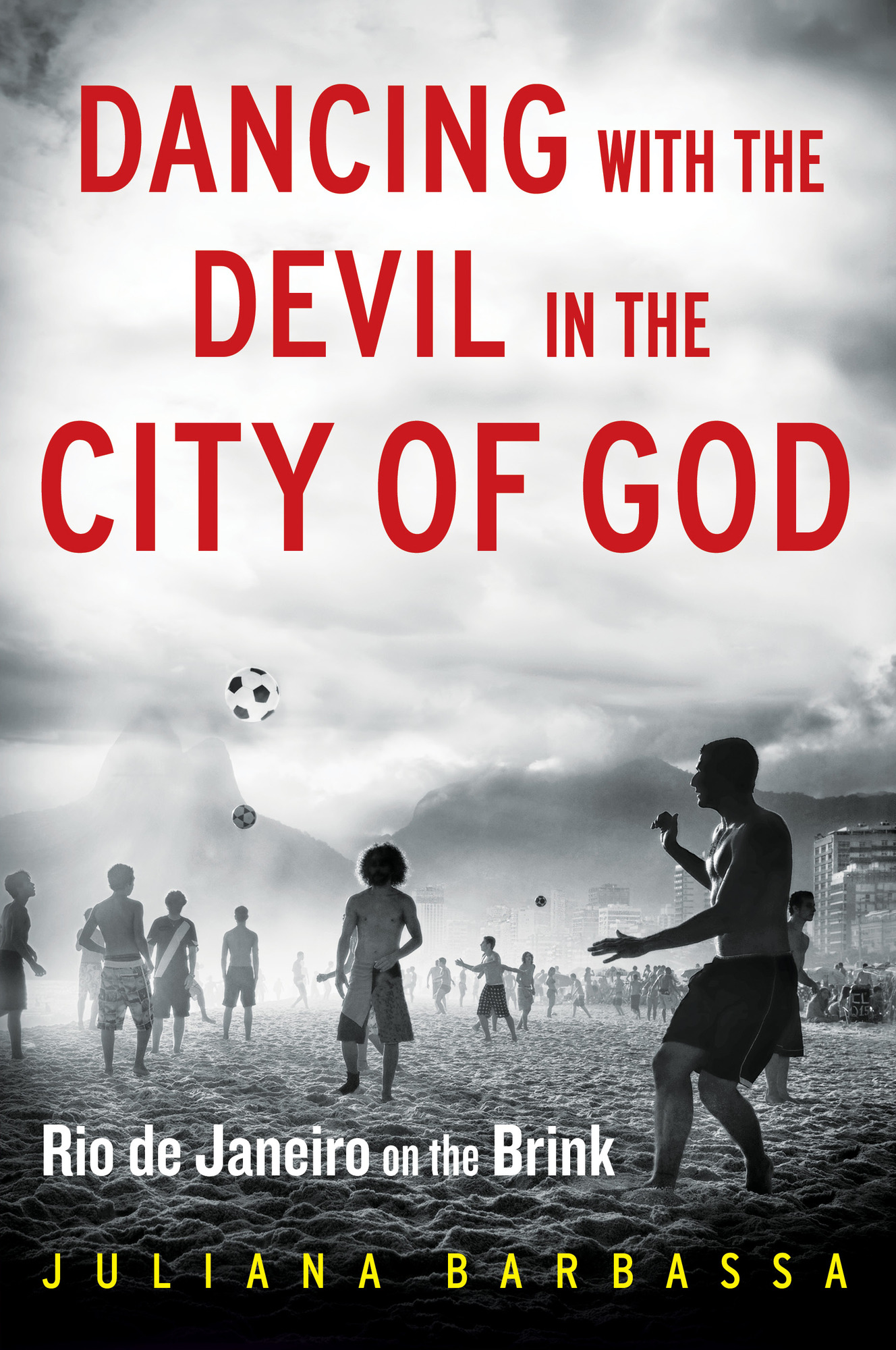
Dancing with the Devil in the City of God
Rio de Janeiro on the Brink
کتاب های مرتبط
- اطلاعات
- نقد و بررسی
- دیدگاه کاربران
نقد و بررسی

March 30, 2015
After a two-decade absence, Barbassa returned to her native Brazil in 2010 as the Associated Press’s Rio de Janeiro correspondent, providing the impetus for this overstuffed but fascinating urban chronicle. She arrived just in time for a confrontation between the Pacification Police Units and the Red Command gang, which ruled the favelas. Barbassa reports on the 2011 flood that claimed 1,000 lives; the 2012 closing of one of South America’s largest landfills, the Gramacho; and the “world’s largest gay wedding” in 2013. She speaks to “anyone who would speak to : taxi drivers, university researchers, cops who wouldn’t give their names, local crime reporters,” as well as politicians, government officials, gang members, environmentalists, restaurateurs, shipyard managers, notaries, and barbers. In between visiting favelas and gated communities, Barbassa touches on issues broad (taxes, immigration, prostitution, homosexuality) and narrow (her own housing problems). So many people and subjects move through the book’s pages that the portrait of “this southern giant” becomes cluttered. Expert as Barbassa is with words, the book’s breadth can feel like a liability. But even readers whose interest flags at times will come away with a sense of having been there. Agent: David Halpern, Robbins Office.

March 1, 2016
This fantastic book by AP journalist, Brazil native, and Rio resident Barbassa outlines the city's history, transformation, and efforts to showcase itself on the international sports stage. It's all laid out for the world to see: armed troops fighting even better-armed criminals in the hills; the displaced poor; human waste on the beaches; skyrocketing real estate prices; public work projects wrecked by corruption--the list goes on and on. Interspersed among these chapters is the search for the elusive Rio caiman (a large aquatic reptile), the perhaps equally elusive Carioca River, and the 2014 World Cup (lessons not learned). This grittier look at this teeming city is not exactly a text recommended by the local tourist boards. (LJ 5/15/15)
Copyright 2016 Library Journal, LLC Used with permission.

Starred review from April 15, 2015
After 21 years of roaming the globe with her family and her career in journalism, Barbassa returned to Rio de Janeiro in 2010 as Brazil prepared for its bids for the 2014 World Cup and 2016 Olympics. It had been a long time, but Barbassa was curious how the bid and the frenzied infrastructure changes it required would impact Rio's tumultuous politics, gross inequalities, vibrant culture, and fragile ecology. Working as an AP reporter, she was on hand for a 12-hour siege of a favela as the police fought to oust violent drug gangs. Relearning the city of her birth, Barbassa chronicles her hunt for an apartment in an increasingly expensive Rio, infrastructure severely overstressed by growth, and the perpetual Rio Zen of living in the moment, partying on beautiful beaches hard by poverty-stricken favelas and garbage dumps. Barbassa examines Brazil's showcase opportunities against its recently booming oil economy, rising expectations among the poor and the middle class, and pressures to burnish its image as a developing nation. Her interviews with police, prostitutes, drug dealers, ecologists, businesspeople, academics, movers and shakers, and the moved and shaken offer a fascinating look at the people who live in and aspire to change one of the world's most impressive cities.(Reprinted with permission of Booklist, copyright 2015, American Library Association.)

























دیدگاه کاربران